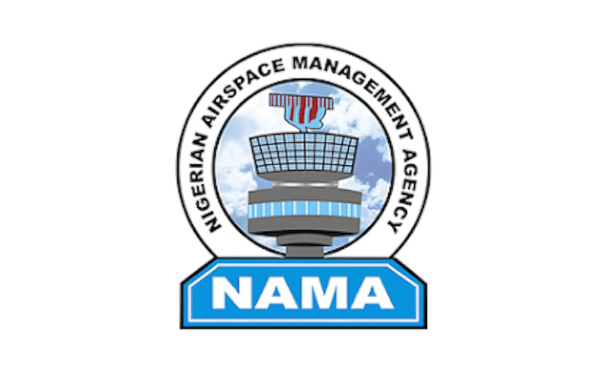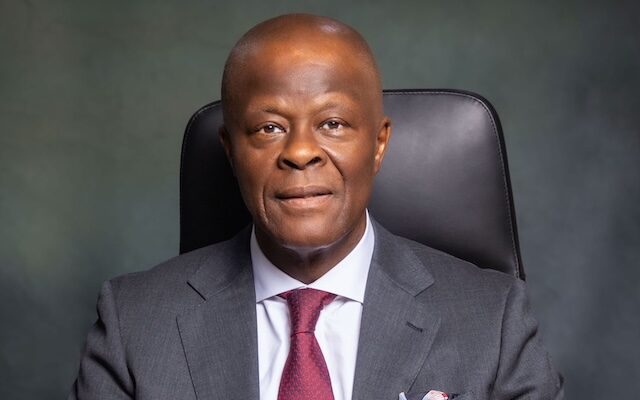
In order to meet the demand of surging population growth, Nigeria must intergrade its different transport means to effectively drive the economy, writes Chinedu Eze
Over the years there has been tremendous pressure on Nigerian roads because the road system is the major means of transport that connects the nooks and crannies of the country. The rail system became moribund until few years ago when government began to revive them in a slow pace, providing obsolete infrastructure and still maintain narrow gauge in most of the areas in the country.
Transportation via the waters is grossly underutilised, but if well-developed, it could connect cities like Calabar, Port Harcourt, Yenagoa, Lagos, Warri, Sapele and all the other littoral towns and cities in the country.
According to experts, in a country with large population, the easiest and cheapest way to move the people is by rail and by the waters but these are underdeveloped means of transportation in a country that is going to contain 240 million by the next decade. Nigeria currently ranks the 6th most populous country in the world.
To address the transportation challenges in the country, experts have suggested multimodal transportation, considering the growing population of Nigeria.
Multimodal transportation has been described as movement of goods using at least two different modes of transport, such as road, rail, air, and sea, under a single contract. It optimises efficiency, cost, and speed by combining the strengths of various transport methods to create a seamless journey from origin to destination. For example, a container can be trucked to a port, loaded onto a ship, and then moved by rail to a final inland destination, all coordinated through one agreement.
Last week, discussions on the need for integrated transport system came to the fore during the 2025 Transport Infrastructure Summit in Lagos. In his keynote speech, the Chair of the Lagos State Government Endowment on Transport Studies, Professor Bamidele Badejo, emphasised on the necessity to intergrade all transport modes in Nigeria to unlock the nation’s economic and social potential.
In the presentation themed: ‘The Future of Transportation in Nigeria: Trends, Challenges, Opportunities and the Way Forward’, Badejo said that multimodal transport integration remained Nigeria’s most viable route to inclusive development, job creation, and sustainable urban growth.
He emphasised that transportation is the lifeline of any nation and its dysfunction has a ripple effect on productivity, trade, and safety. He noted that when transport systems collapse, every aspect of life grinds to a halt, from essential services to economic activity.
“Transport is life, nurtures life, and keeps life going! Imagine what it would mean for an individual, a community, and a country, if for one day, all the means of transportation available grinds to a halt; it means life itself will halt for that period. Workers, including all essential services staff like the doctors, nurses, policemen, fire fighters, to mention a few, will be nowhere at their duty posts. Risks will be at the highest premium, for all. Traders, of all varied descriptions, too, will be unavailable at the various markets. Then, individual and communal life will be at a state of paralysis, for the entire time. Nothing and no one will be in the state of living, as no one is able to move, a temporary death of existence,” he said.
Badejo described Nigeria’s transport reality as a paradox, a nation of vast opportunities trapped by poor planning and weak infrastructure, remarking that despite its population and resources, Nigeria still relies overwhelmingly on road transport, which carries over 90% of passengers and freight.
This dominance, he stressed, has come at a high cost: crumbling roads, constant congestion, environmental degradation, and soaring logistics prices that hinder industrial growth.
Badejo, therefore, urged the Federal and State governments to move from road-centric planning to multimodal transport integration, linking rail, road, air, and waterways into a single efficient network. He emphasised that this approach not only boosts connectivity but also reduces travel time, cost, and emissions.
“Developing an integrated multi-modal transportation system is crucial for Nigeria’s sustainable national development. By combining road, rail, air, and water transportation modes, Nigeria can improve efficiency, reduce costs, and promote environmental sustainability. Addressing challenges such as inadequate infrastructure, undue political interference, and funding constraints will be essential to achieving this goal. With a well-planned and executed strategy, Nigeria can create a transportation system that supports economic growth, improves quality of life, and enhances the country’s global competitiveness,” Professor Badejo said.
He also noted that transportation should be viewed as a derived demand; one that responds directly to population, trade, and industrial activity; hence, planning must be data-driven and responsive to evolving urban and rural mobility patterns.
Nigeria’s transport development, he explained, has been held back by multiple structural weaknesses, including policy inconsistency, fragmented regulation, poor maintenance culture, and chronic underfunding. He criticised the proliferation of transport agencies with overlapping roles, describing it as a major cause of inefficiency.
Badejo also identified energy instability, indiscipline, and lack of human capacity as systemic bottlenecks.
“Our industry is still dominated by those qualified by experience rather than by knowledge,” he warned.
Despite these challenges, Badejo identified several opportunities that can reposition the transport sector as a growth engine. These include clean energy mobility, data-driven logistics, and port modernisation.
He said Nigeria could replicate its mobile technology leap by leapfrogging older transport technologies, adopting smart mobility systems, and embracing private sector participation.
He also called for stronger institutional collaboration, green transport investment, and a maintenance culture that prioritizes sustainability over political expediency.
“The future will not just happen; we must build it deliberately,” Badejo further said and urged policymakers to commit to a national multimodal transport framework that ensures connectivity, innovation, and resilience.
The deliberations last week were in synch with the recommendations of the Committee on Transportation during the National Conference in 2014. The Chairman of the Committee, Senator Musa Adede, explained that prevalent realities have evidenced what the committee members saw 16 years ago.
In the report, the committee had called for the expansion of the rail network to commercial nerve centres and all major ports in the country as well as exploring the possibility of extending railways to all State capitals, urging that Nigeria should embrace modern equipment technology inclusive of fast trains and standard gauge rail tracks for the expansion of its operations.
The committee urged the federal and other tiers of government and the development partners to broaden the scope of Rural Access and Mobility Project (RAMP) to include rural roads in all states of the federation.
“From the foregoing, resolving the perennial challenges of our transportation sector would require the integration of transport with national development priorities through the deployment of appropriate funding and financing mechanism that would enhance the delivery of efficient and effective transportation operations. This would protect our economy and encourage inclusive growth,” the report stated.
The report emphasised that there was need to move from resolutions and recommendations to implementation and action.
“If this is done, we are confident that the committee interventions will trigger the desired transformation in transportation policy reforms, management and implementation in our great country,” the committee said in the report.
Also, in his presentation at the Summit 2025, Chairman of Widescope International Group, Dr. Oluwasegun Musa, who was represented by Mr. Mark Onuchi, noted that Nigeria’s freight sector had begun a deep transformation through strategic public-private partnerships and multimodal integration designed to enhance efficiency and sustainability.
Musa said that Nigeria lost an estimated $8 billion annually to logistical inefficiencies and that was why the integrated transport system should not optional but an economic imperative.
He disclosed that a major symbol of the transformation is the $1.5 billion Lekki Deep Sea Port, commissioned in 2023, stating that the facility has already begun to ease congestion at Apapa Port by enabling direct international shipping links and bypassing costly transhipment routes.
The port’s 2.7 million TEU annual capacity makes it a crucial hub for Nigeria’s growing container traffic, while its multimodal design linking directly to rail and road networks marks a decisive shift from the country’s outdated mono-modal system that once depended almost entirely on trucks.
Studies referenced in Musa’s paper predicted that the new port could help meet projected container demand increases by 2025 and save shippers up to $300 per forty-foot container, directly boosting Nigeria’s trade competitiveness.
He said that Nigeria’s rail infrastructure revival, particularly the Lagos-Kano and Kano-Maradi lines would re-shape how cargo moves inland and thus complementing port expansion,
“Rail cargo volumes grew by an astonishing 132 per centt in 2018, showing the untapped potential for modal shift. Shifting freight from road to rail can reduce emissions by up to 76 per cent,” Musa said.
If every major airport in Nigeria has railway connection and every port in Nigeria has rail service, which takes containers to over parts of Nigeria, the country may have solved its major challenges in the area of transport and this will significantly boost its economy.





